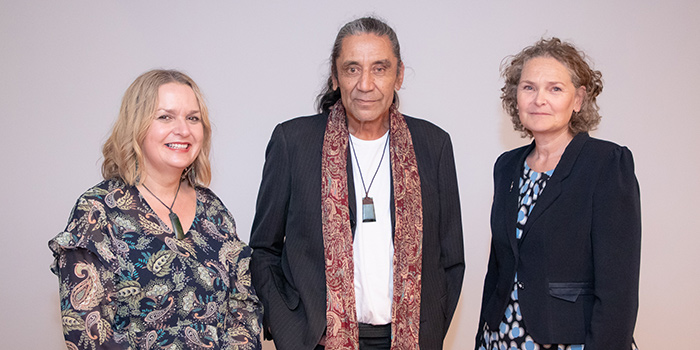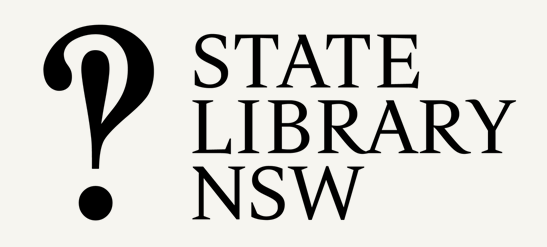With the National Library of New Zealand re-joining NSLA on 1 July 2021, we asked Rachel Esson, Te Pouhuaki National Librarian – Te Puna Mātauranga o Aotearoa, to tell us a bit about herself and what’s been happening at NLNZ.
Tell us briefly about your career path.
You could say my interest in research, leading to a career in the library sector, was set in childhood. My father was a scientist at the research stations in Palmerston North when I was a child and his speciality was cicadas. As well as reading at home, I always loved getting books to read at school, they were the best assignments to get. I studied English and Economics at university, but it was when I got a job as a library assistant in the photographic archive at the Alexander Turnbull Library that I knew I had found my calling.
I am a professionally registered librarian with a Master’s in Library and Information Science, and I also hold a Certificate in Tertiary Teaching from the University of Otago.
Before becoming Te Pouhuaki National Librarian in December last year, I was the Director for Content Services at Te Puna Mātauranga o Aotearoa National Library of New Zealand. I have also been the Associate Chief Librarian Research Collections at the Alexander Turnbull Library, which is part of the National Library.
Before joining the National Library leadership team, I was Associate Director, Library Academic Services at Victoria University of Wellington and Medical Librarian at the University of Otago, Wellington. I am actively involved with the Library and Information Association of New Zealand (LIANZA) and was LIANZA President from 2019-2020.
And, of course, I am delighted, since July, to be on the NSLA Executive Council!
What’s the most challenging thing about leading a library in the digital age?
I tend to see challenges as opportunities. Now is the time to re-examine how we operate and deliver our services as we move increasingly into a digital world, focusing on removing barriers to accessing knowledge for New Zealanders.
With the Tāhuhu: Preserving the Nation’s Memory programme, we have a rare opportunity to create a national campus with state-of-the-art facilities that will ensure our documentary heritage is preserved, protected and celebrated. It is incredibly exciting. The campus will feature the National Library, Archives New Zealand and Ngā Taonga Sound & Vision.
Advances and opportunities in the digital age naturally mean we will need librarians with skills to work in this progressive environment. We are having conversations about digital heritage as a system. This includes defining our priorities, identifying current gaps, looking at where we are investing and setting a firm future focus.
Continuing to develop digital capability, capacity and delivery will be key themes as we put energy into our future budget bids.
It’s a massive task but, at the same time, an absolute privilege to be part of something so important for Aotearoa.
What has been the most difficult or rewarding moment of the past 12 months?
I’m still in my first full year as National Librarian but there have already been many rewarding moments. I’m very fortunate that I have an experienced senior leadership team who, in turn, have incredible staff that each day showcase their skills with the mahi and results they achieve each day. This internal support is backed by the genuine and close interest in the library sector by our Minister of Internal Affairs, the Hon. Jan Tinetti, who has been to several library events.
We signed an historic donation agreement in July with Internet Archive, where all books left at the end of the review of our overseas published collections will be donated to them and digitised for worldwide access and loaning. The project to review these books first began in mid-2018 and, generated much public debate and discussion with interested parties. I am always pleased that people care enough about books and libraries to have this debate and I believe this is a good outcome.
National Library is leading and supporting the New Zealand Libraries Partnership Programme (NZLPP), a government funding package of $58.8 million to retain and support librarians and library services to further help community recovery from COVID-19. We have funded over 170 library staff to work in libraries across the country in areas like digital inclusion and community engagement. It is a hugely exciting initiative, and in July just over $5 million in grants were signed, with the National Library having invited organisations to submit proposals. The funded projects include mātauranga Māori training and coaching, an education campaign aimed at school children, co-ordinating national data collection and upskilling the library sector.
Another great highlight for me was the appointment of Ben Brown as Te Awhi Rito New Zealand Reading Ambassador for children and young people. Ben is a wonderful inaugural appointment for this role, which champions the importance of reading for young New Zealanders, their whānau and communities. The National Library leads this initiative in collaboration with foundation partners Te Puna Foundation, Read New Zealand Te Pou Muramura, Creative New Zealand Toi Aotearoa and Storylines Children’s Literature Charitable Trust Te Whare Waituhi Tamariki o Aotearoa.
Where do you see your library in five years?
How much space do I have! I’d like to see the library and its resources and services more integrated into the lives of New Zealanders – wherever they are located.
We will be part of the new heritage precinct that Tāhuhu is delivering, working closely with Archives New Zealand and Ngā Tāonga. We will be doing more outreach, working with communities so they can collect and preserve their own stories. We are moving from a model of the big national institutions collecting everything to enabling and supporting communities to collect what is important to them. Our role to is provide the connections and expertise to help with that.
The National Library has three strategic themes contained in its Turning Knowledge Into Value document – taonga (treasures), knowledge and reading. These themes provide a great direction for where we are heading and, with my colleagues, we are very focused on delivering initiatives in the next 18 months. I believe the National Library has a leadership role to play in the library sector – our scope and influence is large, and we are mandated to support the sector. Recent highlights mentioned previously are great examples of this mahi.
All of this can’t be done without having conversations with colleagues in the library sector. It’s a real partnership where opinions are sought so the outcomes have real meaning and long-term benefits. I have been really heartened by the goodwill shown in my first year as National Librarian.
What benefits do you see for NLNZ in being part of the NSLA collaboration?
The trans-Tasman relationship we share as countries is centuries deep now and proven, even with the odd family-like difference of opinion we’ve had over the years! The fact is we always come back to each other, and this is what the National Library has done after three years away from NSLA. And while we’ve been away, we’ve always been in touch.
There is a strong resonance with the NSLA’s collaborative priorities and areas where we can contribute positively and meaningfully to them. As I said when the announcement was made, taking collections across Australasia into consideration will enhance ambitions to ensure collections reflect the diversity of both countries. And while that diversity will always remain, there will always be more than a few threads that keep us tied together as well.










